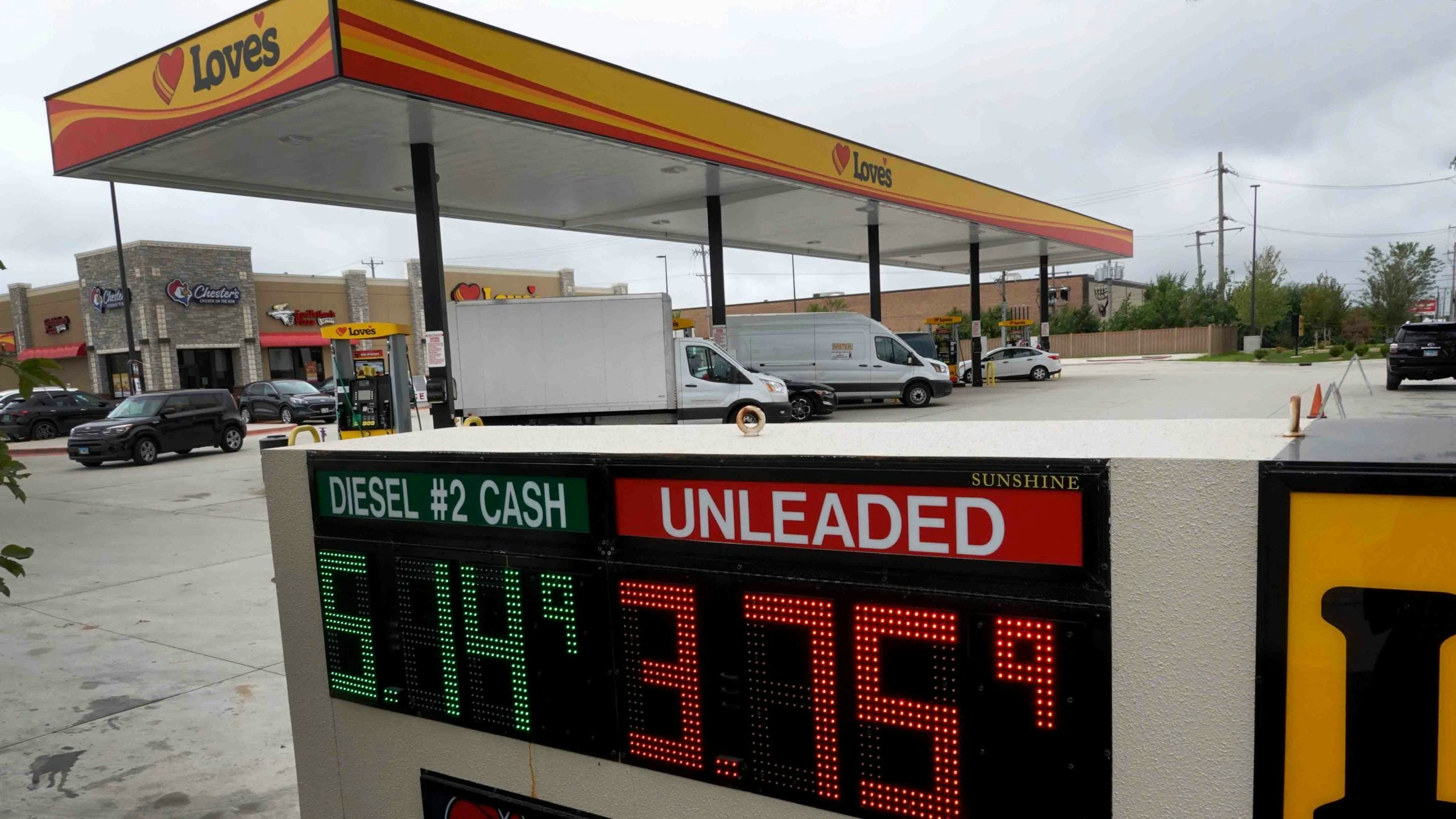Every time drivers fill up at the pump in Wyoming, they might pay as much 20 cents per gallon for something called the Renewable Fuel Standard (RFS), and the EPA won’t allow exemptions that would reduce that cost.
The RFS requires refineries to blend a certain amount of biofuels into gasoline and diesel fuels. Small refineries — defined as those producing fewer than 75,000 barrels per day — can petition the EPA annually for exemptions, if they demonstrate that compliance causes a disproportionate economic hardship for the refinery.
Problematic
Compliance with the RFS “remains problematic for U.S. refiners, including ourselves,” said Josh Jemente, HF Sinclair director of governmental affairs, at a Minerals Business and Economic Development Committee hearing last month.
The RFS especially impacts refineries in Wyoming, Jemente said, because of the state’s distance from large population centers. Add to that cost increases of feedstocks used in the refineries, such as crude oil, from the war in Ukraine, and the increased cost of RFS compliance
Jemente said that credits for the RFS program cost about 17 cents in 2020. Those are now up to $1.60 — a 1,000% increase.
“We believe that the EPA should reinstate the small refinery exemption program immediately and should set the ethanol mandate at what is domestically achievable,” Jemente told the committee.
Flawed Assumptions
Earlier this year, the EPA had denied 61 petitions for RFS relief from small refineries, including the Wyoming refineries that HF Sinclair operates in Wyoming. The petitions were rejected based on the EPA’s conclusion that compliance costs for small refineries are equal to those of large ones.
Days after Jemente’s testimony, the U.S. Government Accountability Office released a report that concluded the EPA, in evaluating exemption requests for the past few years, was using “potentially flawed assumptions” that all refineries pay the same price for compliance.
“The Government Accountability Office’s report affirms our longstanding belief that small refineries incur economic hardship due to the Renewable Fuel Standard and should be allowed to petition the Environmental Protection Agency for relief,” Jemente told Cowboy State Daily.
Policy v. Practice
He said that HF Sinclair continues to urge the Biden administration and the EPA to make the program workers for both U.S. consumers and refiners.
Wyoming U.S. Sen. John Barrasso, ranking member of the Senate Committee on Energy and Natural Resources, was among the signatories of a letter asking the GAO to look into the issue, which prompted the report. The late Sen. Mike Enzi also signed the letter.
Barrasso said the report confirms what critics of the EPA’s rejections have been saying all along.
“EPA’s ethanol mandate has been crushing America’s small refineries for years. That’s especially true in my home state of Wyoming, where small refineries play a critical role in supplying families and businesses the energy they need,” Barrasso said in a statement on the GAO report.
Barrasso said he’d continue to push the EPA to grant the exemptions.
Inherently Political
Diesel and gasoline spot prices, according to the Energy Information Administration, were down from their peak this summer, but remained well above what they were this time last year. They were nearly double what they were in November 2020.
Gov. Mark Gordon had commissioned a working group to look into what is causing high fuel prices and what the state of Wyoming could do.
The group’s report, which was released last month, identifies a number of factors, including the cost of refining, that drive up prices at Wyoming’s pumps. High costs of crude oil and distribution, as well as taxes, were other causes.
At the Wyoming Legislature’s minerals committee meeting, Rep. Chuck Gray asked if Jemente had any suggestions for “creative ways” the state of Wyoming could create an exemption to the EPA requirement.
“This program has become inherently political, driven by Iowa and some of the Midwest politics. So we’re seeing that there’s a lot of inaction in D.C. to address this problem,” Jemente said.
Besides producers of biofuels, corn producers regularly lobby for subsidies and fuel mandates. Their efforts often produce favorable outcomes. The $1.7 trillion Build Back Better Act contained a number of provisions in support of biofuels, including $1 billion for infrastructure.
“We’re seeing this kind of play out in real time where we have skyrocketing costs on consumers,” Jemente told the committee.





